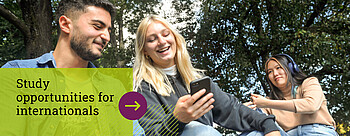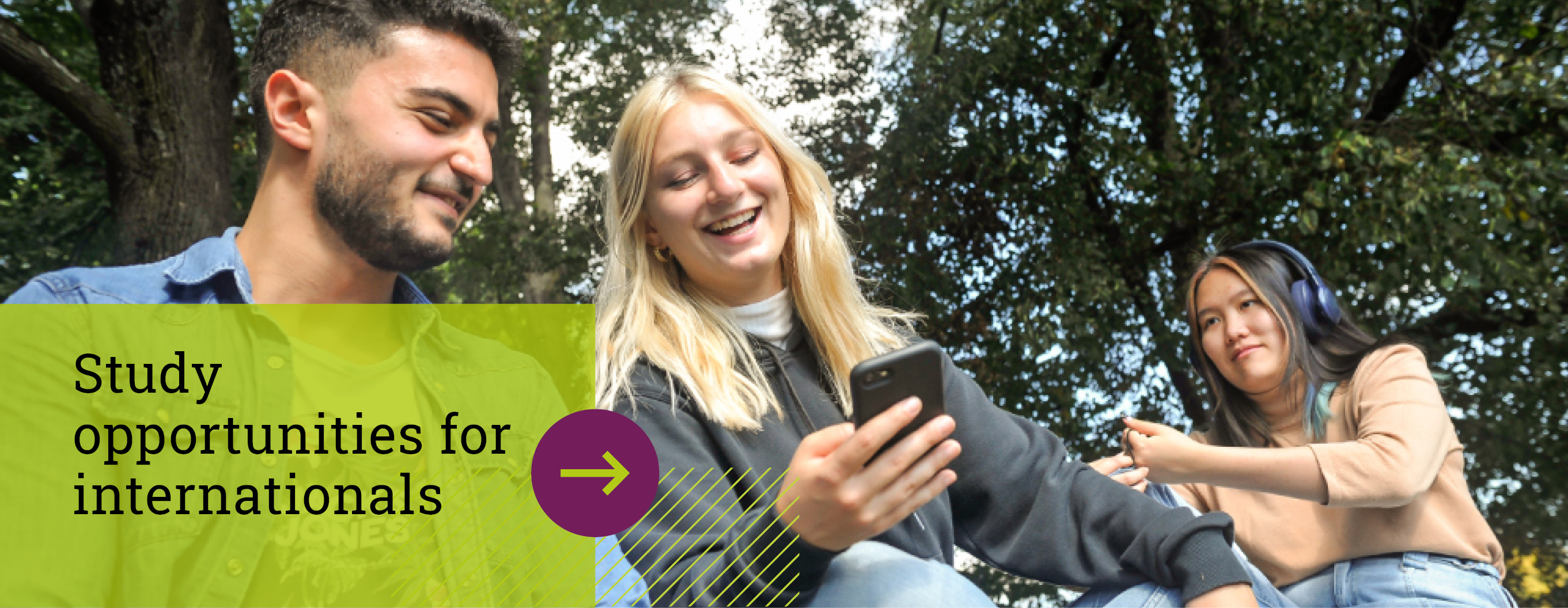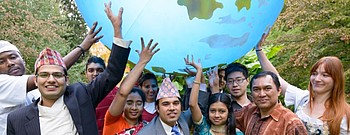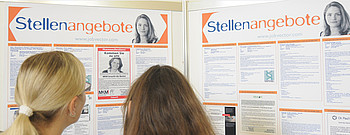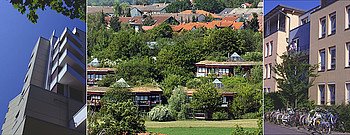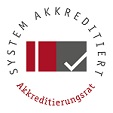Agricultural Economics (Master’s)
Decision-Makers for Global Agricultural Economy and Agricultural Policies
Agricultural Sciences (Master’s)
Major: Agricultural Economics
Decision-Makers for Global Agricultural Economy and Agricultural Policies
This research-based and methods-oriented program deals with the economic, agricultural, and development policy relationships between the agricultural and food economy, the environment, and rural areas. In this English-language and international Master's program funded by the DAAD, economic growth, sustainability, and social justice are central topics, especially in an international and development-related context.
What you can expect:
- A program focused on methodology and research
- DAAD funding program with full scholarships for outstanding applicants from developing countries
- Studying together with students from all over the world
- Strong alumni network
- Diverse career opportunities for agricultural economists
- Reasons to Choose Hohenheim
| Degree Master of Science |
4 semesters 120 credits |
Language English |
University places unlimited |
Location Stuttgart |
|||||
Please note that as of October 2017, the state government introduced tuition fees for students from non-EU countries.
AgEcon applicants who are citizens of certain African, Caribbean, or Pacific states or a Least Developed Country can be exempted from the tuition fee requirement for international students by submitting an exemption request. This is also a possibility for AgEcon applicants who have received a DAAD scholarship (regardless of their citizenship). Additional information

You can find information on the individual modules in the module catalog.
This degree program places a great deal of emphasis on a well-founded education in business and agro-economic theories and methods, as well as on their application to specific problems and contexts in the international agricultural and food sectors.
To achieve this, you will be trained in the following skills:
- Theoretical concepts relating to agricultural and development economics
- Quantitative and qualitative research methods
- Integration of sustainability issues into policy analysis
- Interdisciplinary analysis of complex systems
- Communication and presentation techniques
In the first year of study, you complete five compulsory modules on:
- Agricultural and Food Policy
- Applied Econometrics
- Environmental and Resource Economics
- Farm System Modeling
- Microeconomics
In addition, you can choose five semi-elective modules from the fields of agricultural development, international agricultural trade, world food economy, agricultural and food policy, methods of empirical economic and social research, etc. Your lectures are supplemented by computer exercises, group discussions, seminar papers, and case studies, which are worked out and presented in groups or as individual papers.
Second year of studies
In the second year of studies, you can choose five more elective modules from a large catalog of subjects. This ensures you will have a solid education in the sub-disciplines of agricultural economics, while at the same time providing sufficient freedom to put together a program that suits your individual career planning. The academic program advisors advise you on your choice of modules and in planning your studies to ensure that you progress smoothly and directly.
You will also complete your Master's thesis in your second year of studies.
You want to know more?
Detailed information about the course and structure of the degree program can be downloaded here:
- Curriculum
- Module catalog
- Examination regulations
- Admission regulations (german | english)
Video on the Agricultural Economics major
This degree program values a well-founded education in business and economic theories and methods as well as applying these to concrete problems and issues in the international agricultural and food sectors.
The degree program aims to educate agricultural economists in the following competencies:
- Theoretical concepts of agricultural economics
- Quantitative and qualitative research methods
- Integration of sustainability issues into policy analysis
- Interdisciplinary analysis of complex systems
- Communication and presentation techniques
As the agri-food sector becomes more diverse, global, and highly technical, a growing variety of career opportunities are opening up for well-trained agricultural economists. At Hohenheim, you acquire the analytical skills and the necessary understanding of political contexts to be able to work in governmental and non-governmental organizations, international organizations, and the private sector. The program also opens up excellent opportunities for you to complete a doctorate and pursue an academic career.
Typical areas of work for agricultural economists are found in:
- Companies in the upstream and downstream sectors of the food and agricultural industries
- Regulatory bodies along the value-added chain
- Governmental and non-governmental organizations
- National and international organizations
- Teaching and research institutions
If you are interested in continuing to conduct research, the degree program also qualifies you for further doctoral studies.
The AgEcon alumni website offers you an insight into our alumni’s careers.

Ilkin Huseynov, Azerbaijan, Graduate of 2019
Data and Sales Manager at IFCN Dairy Research Network:
"When I think about my student times, I always proudly say that I graduated from the Agricultural Economics Master’s degree program at the University of Hohenheim. I describe my time spent in Hohenheim as one of the most memorable periods of my life.
Each subject taken during the study period had a great role to improve my knowledge and develop my quantitative and qualitative analytical skills. Great groupworks, interesting student presentations and papers, student excursions etc. make the program much more interesting.
Overall, this program helped me to see my own potential. When I combine the knowledge, skills, and interpersonal competencies I gained during the studies, for me it was not too difficult to define my future career path and decide on what I want to do."

Sharon Mayienga, Kenya, Graduate of 2019
Economist Food Losses at UN FAO, Rome:
"I studied a Master’s in Agricultural Economics at the University of Hohenheim under the DAAD scholarship. One thing I enjoyed the most was the stress-free study environment because my expenses were catered for by the scholarship so I concentrated fully on my studies
The academic life was interesting because of the semi-independent type of teaching where the lecturers allow and encourage the students to be free thinkers and apply whatever is learnt into everyday aspects of life and not micro-managing the content imparted to the students.
The social life was amazing, I particularly enjoyed the parties at TMS and other social events organized by students and faculty. All I can say is that the university has an interesting study-life balance that molded me in all aspects of my life."

Modupe Oluokun, Nigeria, Graduate of 2021, Junior Advisor, Digital Global Transformation at GIZ Bonn:
"My AgEcon Master's study experience at the University of Hohenheim was nothing short of AMAZING! It was a comprehensive, robust and interesting experience that has highly impacted my professional and academic life, it has equipped me with skills necessary to thrive and excel.
The lectures were always in depth, educative and kept one yearning for more. The lecturers are also highly knowledgeable and always looked out for one's success. Interactions with colleagues during the program has afforded me the opportunity to develop meaningful relationships both in my professional and personal life. It was absolutely worth it and I would highly recommend!"
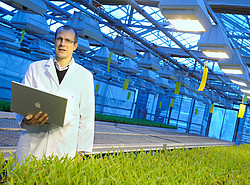
Good reasons to study at the Faculty of Agricultural Sciences in Hohenheim
First Place not Once but Three Times: The current Global Universities Ranking from U.S. News & World Report, the renowned NTU ranking, QS World University Ranking, and dathe Center of World University Ranking put University of Hohenheim’s agricultural research in 1st place in Germany.
In the agricultural university ranking from top agrar, the agricultural students at the University of Hohenheim give the grades 1.5 to 2.0. According to the ranking 2016, 88% of the students surveyed would recommend the University of Hohenheim for agricultural studies.
The University of Hohenheim puts great importance on quality teaching, which is demonstrated by several award-winning reform projects.
These projects include for example mobile teaching (German e-learning innovation and young scientists award (d-elina) in the category “Campus” at the BITKOM) or the ethics module, developed by the student group FRESH and awarded by the UN.

The program has been recognized by the German Academic Exchange Service (DAAD) by including it in its special initiative "Postgraduate Courses for Professionals with Relevance to Developing Countries." Furthermore, the DAAD offers a limited number of full scholarships for outstanding AgEcon candidates from developing countries.

The vision of the Faculty of Agricultural Sciences is a global agricultural system which is productive, environmentally-friendly and socially-minded, and which is in harmony with society’s demand for a multi-purpose orientation.
Agricultural research at the University of Hohenheim is focused on four areas:
- Food for all: Security of global food supply
- Hazard prevention: Climate change and scarcity of resources
- Beyond fossil fuels: Bioenergy and bio-based value-creation networks
- Diversity instead of monoculture: Genome Diversity in Agriculture
There are no easy answers to these kinds of questions. That is why agricultural researchers at the University of Hohenheim work across disciplinary boundaries, collaborating with colleagues in the natural sciences, business administration and economics, and the social sciences, for instance in bioeconomics, a field of research and teaching that will become even more important in the future. That collaboration also has an impact on teaching.
Number 1 in internationalization: In the current EU ranking U-Multirank, the University of Hohenheim has a top spot in internationalization.
The basis for this placing is the decades-long, global commitment of the Agricultural Sciences. Especially our tropics research with 10 professorships has made the University known around the world.
International opportunities for students:
- 80 partner institutions worldwide (40 of which are in the Erasmus+ program)
- Member of the Euroleague for Life Sciences - the network for Europe’s best
- scholarship programs for travel, research, and exchange
- Worldwide alumni network
- Studies according to international standards for excellence and international competitiveness of graduates
Professors of the Faculty of Agricultural Sciences are in high demand.
The top experts include:
 | Chair of the scientific advisory council Prof. Dr. Martina Brockmeier The German Council of Science and Humanities is considered the highest-ranking advisory committee on topics of science in Germany. Its scientific members are appointed by the Federal President. |
 | In the Bioeconomy Council Prof. Dr. Regina Birner The Bioeconomy Council is an independent advisory committee for the German federal government. The goal: to establish a cross-sectoral and bio-based economy in Germany that uses as few fossil raw materials as possible. |
Further members in important commissions and expert lists
- Prof. Dr. Iris Lewandowski and Prof. Dr. Joachim Müller are members of the BMBF scientific advisory council "Agricultural Systems of the Future”
- Prof. Dr. Enno Bahrs is member of the BMEL scientific advisory council for biodiversity and genetic resources
- Expert lists on various agricultural topics

Scholarship and awards for studies, final theses, travel, and attending conferences: Thanks to many supporters, the University of Hohenheim has an unusually extensive scholarship culture.
Around 100,000 Euros is the total amount of all scholarships and awards that are presented each year at the Dies academicus.
More than 700 hectares of test area: Among German universities, the University of Hohenheim owns the largest amount of property. For students, this means a lot of room for their own experiments, research, and a great deal of hands-on experience.
Also directly on campus: State institutes for transferring science into practice, the Hohenheim Gardens, and the German Agricultural Museum.

The future lack of experts and managers in the area of agriculture / nutrition / horticulture means students of agricultural will have good career prospects. This was shown by a 2015 study by the Bundesverband Agrar Ernährung Umwelt (VDL).

The University of Hohenheim is a university with a long tradition. You will experience a truly unique university atmosphere enriched by the Baroque palace, the historic gardens and parks, and modern architecture: In 2009, the University of Hohenheim was declared the most beautiful campus university in the state.
In 2017, Hohenheim's President Stephan Dabbert was chosen by the German Association of University Professors and Lecturers (DHV) as the most popular president in Baden-Württemberg for the third year in a row. He was ranked second in all of Germany.
This jewel is located south of the state capital Stuttgart. Because it is close to Stuttgart, you have all the opportunities available in a big city. The University of Hohenheim is only a few minutes away from the airport, the Stuttgart Trade Fair Centre, and the autobahn and is easily reached with public transportation.
 | Unique party atmosphere: The historical Thomas-Müntzer-Scheuer, an old barn with a new purpose, is the party center of Hohenheim. |
 | The University ball in the pompous palace rooms is the social event of the year. |
Because of the freedom you have in designing your last year of studies, credits earned during a semester abroad can be easily recognized as elective modules. You can therefore still complete your degree in the standard period of time.
The Faculty of Agricultural Sciences engages in research and teaching cooperation with 80 partner institutions worldwide including 40 universities in the ERASMUS+ program.
You can also conduct research for your Master’s thesis abroad.
The University of Hohenheim’s Office of International Affairs offers extensive information and advising on stays abroad and how to finance these stays with scholarships.

All about Agricultural Economics
- Faculty of Agricultural Sciences
- Advising and supervising the students
- Student representatives (Fachschaft) for agricultural sciences
- International Student Organisation Hohenheim e.V.
- DAAD scholarships for applicants from developing countries
- Hans Ruthenberg Institute for Tropical Agricultural Sciences
- Association for Tropical and Subtropical Agricultural Research ATSAF
- TOEFL test | IELTS
- Contact our students and alumni
Semester fees, rent, costs of living - How much will studying cost you and how can you finance it? We have collected the most important information. more
If you choose to study in Hohenheim, you will have to look for a room or an apartment in the region. We can help you with this. more
| Application deadlines | |
|---|---|
| 1st subject-related semester | Only possible for the winter semester! German, EU citizens: 15 September Non-EU citizens: 15 March |
Higher subject-related semesters | For the winter semester: For the summer semester: |
| Requirements | |
|---|---|
| Formal requirements |
|
| Content requirements | We require good English and IT skills as well as the willingness and ability to work in intercultural teams. |
| Language skills | English language proficiency required |
| Pre-study internship | no |
| Selection procedure | |
|---|---|
| Selection criteria | None, the number of places is not limited However, an above-average average grade in the Bachelor’s program as well as a suitable previous degree program are admission requirements. If the final grade or grade point average of this degree is not above average, special aptitude for the degree program can be proven if necessary (for details see the Admission Regulations (german | english)). |
| Selection interview | no |


